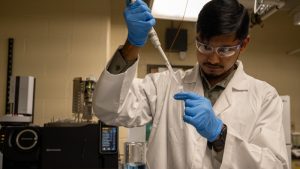
July 10, 2025
Protecting public health by investigating drinking water and soil contamination
PhD student Dibya Kanti Datta seeks to raise public awareness about emerging threats like microplastics and highlight the importance of environmental stewardship.
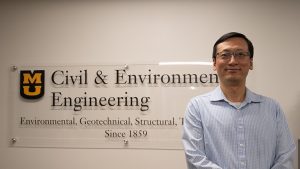
Jan. 31, 2025
Mizzou researchers discover simple solution to break down forever chemicals
The answer to removing PFAS, also known as “forever chemicals,” may be in your fishbowl.

Sep. 4, 2024
Investigating microplastics
Maryam Salehi from Mizzou’s College of Engineering spent the summer studying microplastics with colleagues in Germany.
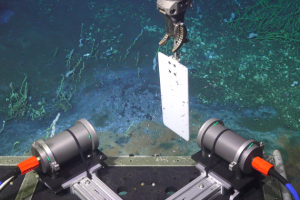
July 9, 2024
Bubbling with curiosity: Mizzou engineer investigates oceanic phenomenon
Binbin Wang has spent years researching hydrocarbons in the Gulf of Mexico and discovering how natural seeps in the ocean floor affect the environment. He is now working on a long-term research project using a National Science Foundation research vessel.

March 8, 2024
Xiao recognized with Excellence in Research Award from Environmental Science & Technology journal
Mizzou Engineering’s Feng “Frank” Xiao has been recognized with an Excellence in Review Award from Environmental Science & Technology (ES&T), the premier journal in environmental engineering and science.
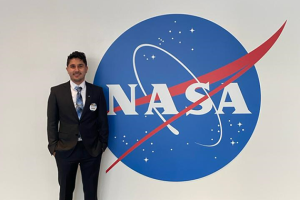
Jan. 24, 2024
Through internship at NASA, Mizzou Engineer finds satellite imagery key to monitoring environmental changes
The ice that used to cover roughly 85% of Alaska is thawing, causing ground to collapse and putting communities at risk. Jaweed Nazary, a Ph.D. student in civil and environmental engineering, has found that satellite imagery is key to pinpointing exactly which locations are most susceptible to these changing conditions.
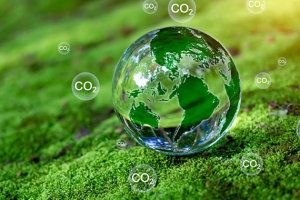
Nov. 10, 2023
Algae-based manufacturing system uses CO2 to create eco-friendly plastic
Biodegradable plastics made from sustainable sources and CO2 are one step closer to reality thanks, in part, to a Mizzou Engineer’s expertise in bioprocesses and bioproducts.

Oct. 26, 2023
Mizzou Engineer part of Dept. of Energy project to cut greenhouse gas emissions at wastewater treatment plants
A Mizzou Engineer is part of a multi-disciplinary team working to improve wastewater treatment processes to cut greenhouse gas emissions by half without increasing costs to plants.
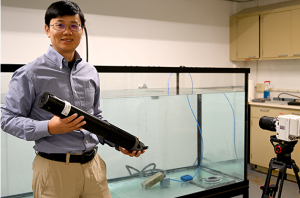
Sep. 25, 2023
Wang receives funding to develop technology to study natural seeps
A thousand feet under the ocean, plumes of gases are rising out of plant and animal fossils. These natural seeps provide necessary food and energy for marine life. In rare situations, they could also pose challenges to oceanic exploration if they are massive in volume and could be releasing methane into the environment in shallow waters.
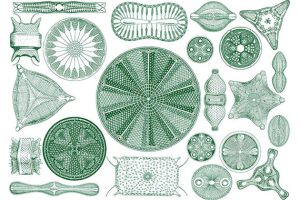
April 13, 2022
Researcher studying ways to maximize environmental benefits of green algae
Diatoms are abundant in nature and their structures could be used for environmentally friendly, high-value products, technologies to clean our air and new methods to purify our water.